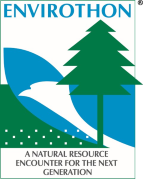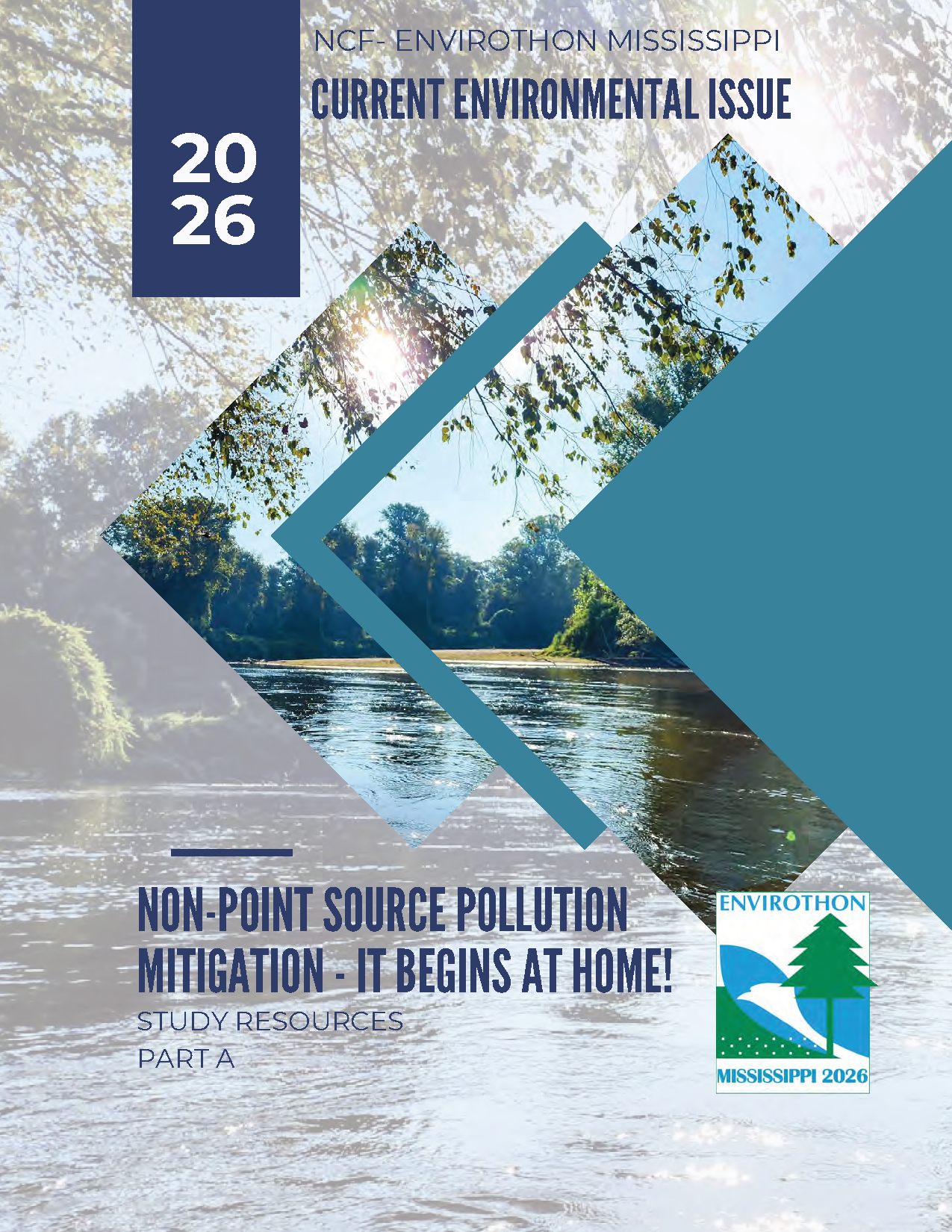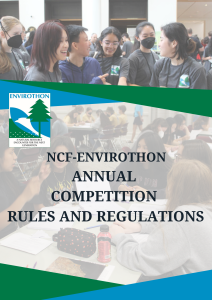
Competition Study Resources
2026 NCF-Envirothon Mississippi Competition
July 19 - 25, 2026
Starkville, Mississippi
Scroll down for Study Resources
2026 Current Issue Topic
Non-Point Source Pollution: It begins at home!
The state of Mississippi has abundant surface water resources that are designated for uses that include navigation, recreation, fish and wildlife use, shellfish harvesting, and public water supply. Key waterways include the Mississippi, Pearl, Pascagoula, and Tombigbee Rivers. These waters have historical significance and will continue to play a vital role in the future, but pollution poses a major threat to water quality and public health.
The landmark Clean Water Act (CWA) of 1972 in the United States established a foundational framework for regulating the discharge of both point and non-point source pollutants into the nation's waters, as well as setting surface water quality standards. Point source pollutants come from a single, identifiable origin, such as a discharge pipe from a factory. On the other hand, non-point source (NPS) pollution originates from a wide area without a specific source, like runoff from agricultural fields or urban streets during a rain event. This widespread nature complicates the task of pinpointing the exact source of the pollutants. The CWA primarily addressed point source pollution through regulations and permits, while NPS pollution remained in the realm of voluntary or local action in urban and rural areas. In the mid-1990s, the U.S. Environmental Protection Agency began to address some non-point source pollution through a series of new stormwater permits, however mitigating NPS pollution and improving water quality requires coordinated efforts from individual and community-based efforts.
Many individuals do not realize how their actions contribute to non-point source pollution, either directly through their consumption and disposal habits or indirectly through the products and services they purchase (e.g., the life of a plastic water bottle). It is essential for individuals to acknowledge their role in this issue and understand how they can help provide solutions. Tackling non-point source pollution starts at the individual level - change begins at home.
Students will learn about NPS pollution and identify its origins in both urban and rural settings. They will learn how to conduct their own NPS survey in their community and watershed. Additionally, they will learn about NPS mitigation strategies, which encompass actions at both the individual level - such as conservation, recycling, and responsible consumption - and the community level, including watershed planning, best management practices, nature-based solutions, water quality testing, and litter prevention initiatives.
2026 Study Resources
Learning Objectives and Resource Guides
Please Note:
- Any hyperlinks within the study resources, except for those specifically mentioned as a resource on the Key Topics pages and with a dedicated page in the resources (i.e., YouTube videos), are supplemental material ONLY. They may be used for additional information, but are not required study resources.
- The below Study Resource files are large and may take time to download depending on your connection speed.
About the Current Issue Study Guides:
There will be TWO (2) sections of study resources for the Current Issues station:
- Part A: Consists of Key Topics, Learning Objectives, and Study Resources directly relating to the 2026 Current Issue. It contains general content knowledge as well as resources from a regional, North American, or global perspective. Click on the image to the left to download Part A.
- Part B: Resources may be more specific to the state of Mississippi, but have broader application. Part B will be posted in May 2025.
BOTH sections will be used for the 2026 NCF-Envirothon Annual Competition's Current Issue Test and Oral Presentation Scenario.


